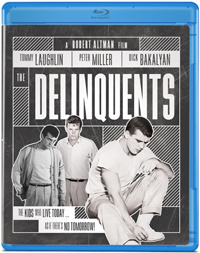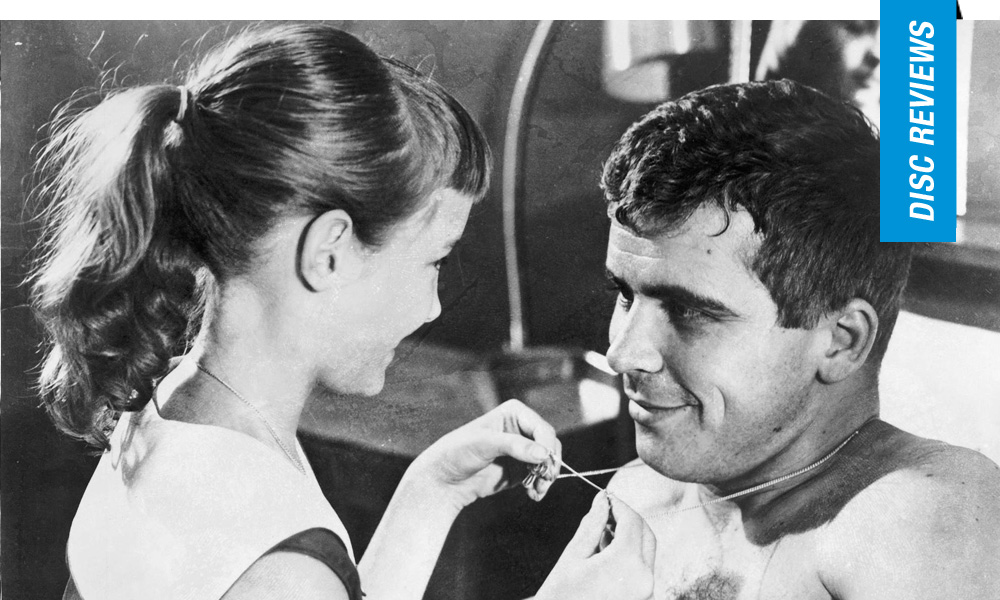
If it weren’t for the heavy-handed agitprop bookending The Delinquents during the opening and closing narration, the film’s earnest narrative lessons on the dangerousness of bad company might have seemed less self-righteous and sententious. However, the sermonizing semblance of white patriarchy begs the flock to heed the dangerousness of those suspicious personalities who shun the teachings of their local church group, demonizing ‘delinquency’ as a disease akin to cancer, a gateway to even scarier moral and cultural purgatory, like the dread red Communism.
The ‘educational’ film does a fine job of reflecting the hypocritical mixed signals of the era as concerns the accepted heteronormative dating ritual. Scotty (Tommy Laughlin) is dismayed when his girlfriend Janice (Rosemary Howard) is forbidden to see him anymore. Not yet seventeen, Janice’s parents insist their daughter not settle down on a beau too soon, suggesting she see other young men before she decides on ‘the one.’ The young lovers balk at what they consider an inane demand, and commit to waiting until Janice is eighteen so they can resume their relationship freely. But when providence aligns Scotty with a group of ragtag miscreants led by the aggressive and unfavorably named Cholly (Peter Miller), the young man finds a way to spend time with Janice. Posing as a would be suitor for Janice, Cholly takes the young woman out so she can secretly see Scotty—but Cholly and his gang insist the lovebirds attend a drunken party at an abandoned house. Under duress, Janice insists they leave the shindig early. When the police bust up the party and arrest Cholly and co., the group blames Scotty, leading to a deadly showdown.
Altman does a decent job of capturing the aimless and limited perspective of self involved youth, and Tommy Laughlin gives a likeable performance as the daffy but moonstruck Scotty (a decade later, Laughlin would become notable as the heroic Billy Jack in the film The Born Losers, which would spawn three sequels). Rosemary Howard, in her only screen role, is a rather milquetoast dramatic catalyst, while Peter Miller and his gang of greasers (including Richard Bakalyan, a character actor who would later appear in Von Ryan’s Express and Chinatown) aren’t so much menacing as ceaselessly irritating.
Quality wise, The Delinquents is not far removed from a glut of other teensploitation items from the 1940s and 1950s depicting youths lost to vice in either the absence of parents (like 1944’s I Accuse My Parents). Altman’s name grants this a historical interest akin to 1958’s The Party Crashers, another teen gang saga maintaining curio interest for the presence of post-lobotomized Frances Farmer in one of her final screen roles.
Disc Review:
Olive Films presents this curiosity in 1.66:1 (the label released Altman’s Come Back to the Five and Dime, Jimmy Dean, Jimmy Dean a couple years prior). Sans any extra features, picture and sound quality are serviceable, even though Charles Paddock’s cinematography (his only feature) is visually in the same vein as other educational items from the period.
Final Thoughts:
A must for Altman completests, The Delinquents may hold more interest for enthusiasts of early independent or propaganda films from the 1950s.
Film Review: ★★★/☆☆☆☆☆
Disc Review: ★★★/☆☆☆☆☆
